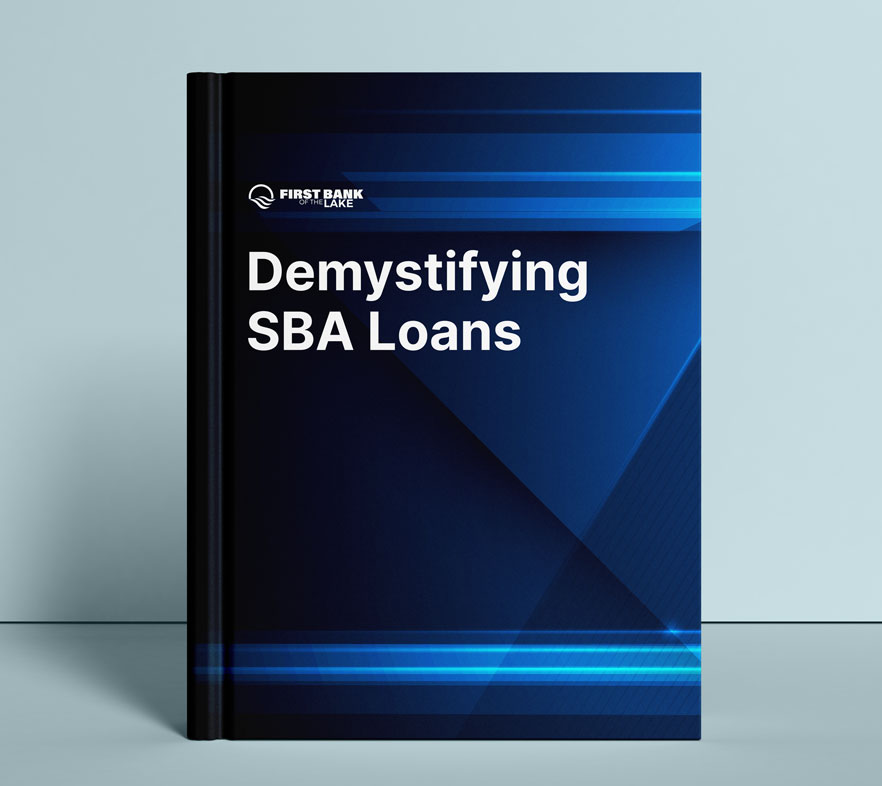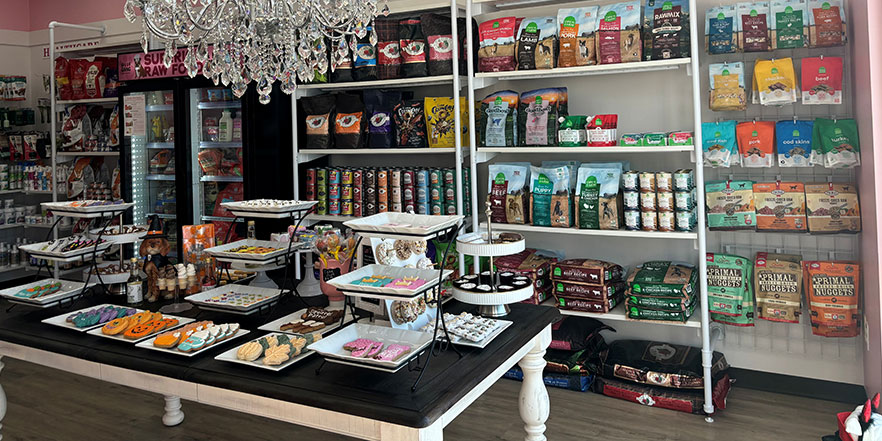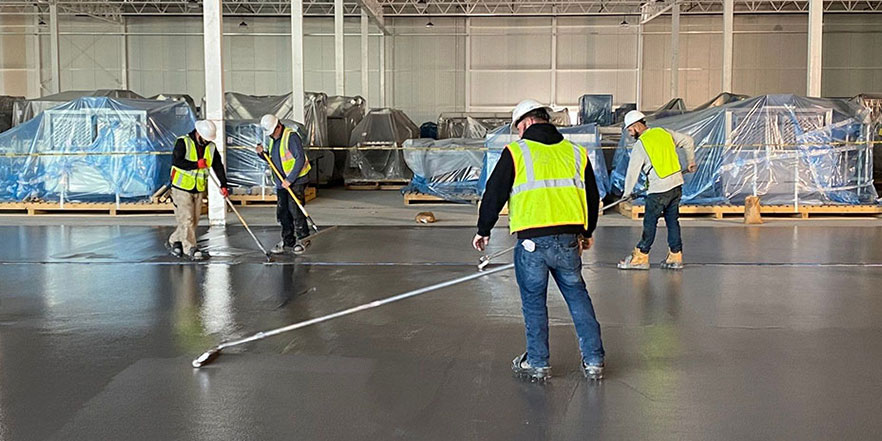Franchise Loan Calculator
Home » Calculators »
How to Buy a Franchise, Starting With Our Franchise Loan Calculator
Buying a franchise can be your ticket to business ownership with a built-in support system and brand recognition. Franchise businesses have a success rate of over 90% survival during their first two years, far outpacing independent startups. Today there are more than 792,000 established U.S. franchises that are contributing trillions of dollars to the economy annually. This guide will show you step-by-step how to buy a franchise business, covering what franchises are, how to find the right opportunity, costs and financing (including franchise financing with SBA loans), and the process from signing the agreement to opening day.
Please Enter Your Franchise Loan Details
Information and interactive calculators are made available to you only as self-help tools for your independent use and are not intended to provide loan advice. We cannot and do not guarantee their applicability or accuracy in regards to your circumstances. All examples are hypothetical and are for illustrative purposes. We encourage you to seek personalized advice from qualified professionals regarding all financial issues.
Ranked a Top 3 SBA franchise lender^
+$600 million franchise loans funded
+$2 billion in SBA loans since 2020
+2,000 SBA loans funded since 2020
See if You Pre-Qualify for an SBA Loan in 3 Minutes
Get the capital you need to fund your business

Fill in your info:

Estimate your Monthly Payment and Interest for a Franchise Loan
A franchise loan calculator simplifies financial planning by estimating monthly payments, interest costs, and total loan expenses. It helps aspiring franchise owners compare financing options, budget effectively, and make informed decisions. This tool ensures clarity and confidence, making it an essential resource for navigating franchise business loan opportunities.
How to Use a Franchise Loan Calculator
Using a franchise business loan calculator is simple and can save you time when planning your franchise investment. Start by finding a reliable franchise business loan calculator online. Input the loan amount you need, the interest rate (5-15%), and the repayment term (like 5 or 10 years). The calculator will instantly display your estimated monthly payments and the total cost of the loan. To get the most accurate results, ensure you have precise figures for your loan terms. A franchise loan calculator is especially helpful for comparing multiple financing options, helping you choose the one that best fits your budget and business goals.
How to Enter Data in for the Franchise Loan Calculator
- Franchise Loan Calculator – Loan Amount: Enter the total financing you need, anywhere from $50,000 to $5 million. Choose an amount that covers the franchise cost, working capital, equipment, or a full business purchase while staying within your borrowing capacity.
- Franchise Loan Calculator – Interest Rate: Input the annual percentage rate you expect the lender to charge, usually tied to the Prime Rate. A higher rate raises monthly costs, so adjust this field to see how different rates affect affordability.
- Franchise Loan Calculator – Term of Loan: Select the repayment period. Typical ranges are up to 10 years for working capital or equipment and up to 25 years for real estate. Longer terms typically lower monthly payments but increase the total interest paid.
Results for the Franchise Loan Calculator
- Franchise Business Loan Calculator – Monthly Payment: This is the estimated principal, interest due each month, letting you gauge affordability and manage cash flow. Actual payment amounts will be calculated with the final loan agreement.
- Franchise Loan Calculator – Interest Paid: This is the total estimated borrowing cost over the term of the loan, showing expense beyond principal and helping with loan comparisons. Franchise loans are often tied to the Prime Rate and typically adjusted on a set schedule per the agreed loan terms.
Franchise Business Loan Calculator Limitations and Disclaimers
Loan calculators are offered as tools to estimate loan costs based on user inputs like loan amount, interest rate, and term, but these results are not guaranteed and should only be considered a guideline or estimate. Borrowers should use them as a guide and consult financial advisors for tailored advice. At First Bank of the Lake, the information and interactive calculators we provided are intended solely as self-help tools for your independent use. All examples are hypothetical and meant for illustrative purposes only. To ensure clarity and informed decision-making, we encourage users to understand that calculator results are non-binding, based on general assumptions, and subject to change. We strongly recommend consulting directly with one of our loan officers or qualified professionals for personalized guidance tailored to your financial needs.
Contents
- What Is a Franchise?
- Finding the Right Franchise to Buy
- Franchise Industries and Examples
- Narrowing Down Your Franchise Choices
- Establish Your Franchise Budget and Costs
- Attend a Franchisor Discovery Day
- Costs and Franchise Financing Options
- Preparing to Purchase and Launch Your Franchise
- Franchise Success Stories and Resources
- How to Buy a Franchise FAQ
- Getting Started on Your Franchise Journey

What Is a Franchise?
A franchise is a business model where an individual (the franchisee) buys the rights to open and run a location of an established company (the franchisor). When you purchase a franchise, you’re investing in a proven system that provides the rights to use the brand’s name, products, and business model, as detailed in the Franchise Disclosure Document, in exchange for upfront fees and ongoing royalties. Essentially, you’re in business for yourself, but not by yourself – you operate your own location and hire staff, while the franchisor provides training, standards and support.
Franchises exist in almost every industry, from fast food and retail to gyms and home services. This model offers a middle ground between starting a business from scratch and working for someone else. You get an ownership stake and independence, but you also follow a tried-and-true system with guidance from the franchisor. The U.S. Federal Trade Commission requires franchisors to disclose key information to prospective buyers through a Franchise Disclosure Document, known as the FDD. We’ll discuss how to review this crucial document later in the guide.
Why Buy a Franchise?
Many entrepreneurs ask, why buy a franchise instead of starting an independent business from scratch. Franchising has earned national recognition, including from congressional leaders, as a key driver of entrepreneurship and a valuable part of the American business landscape. Despite current economic challenges, a recent franchise growth survey shows strong optimism across the industry. Franchising continues to offer several key advantages for entrepreneurs:
- Proven Business Model: When you buy a business franchise, you’re tapping into a concept that has already been tested and refined. This eliminates a lot of guesswork. For example, opening an independent restaurant means creating recipes, themes, branding and operating systems from the ground up. Whereas with a franchise, the concepts, recipes and systems have all been tried and perfected for you.
- Built-In Brand Recognition: Franchises come with an established brand that people recognize and trust. Customers already recognize the logo on your door and the products you offer, which can lead to faster sales. Building brand awareness on your own can take years, but a franchise gives you instant credibility.
- Training and Support: Good franchisors offer training programs, marketing assistance and operational guidance to their franchisees. This support helps newcomers learn the ropes of the business quickly. With a franchise, there is a roadmap to follow and an experienced team whenever you need help or have questions.
- Higher Success Rates: Statistically, franchises have higher success rates than new independent businesses. The proven framework and ongoing support reduce the risk of failure. While all businesses have risks, a franchise’s track record can give lenders and owners more confidence in the businesses long-term success.
- Easier Financing: Buying a well-known franchise often makes it easier to secure funding, as lenders view these businesses as a lower risk. Both banks and the U.S. Small Business Administration (SBA) knows that franchises have historically lower default rates. In fact, there are specialized loans to buy a franchise, like SBA 7(a) loans, which are available to help cover franchise costs, often with favorable terms.
In short, buying a franchise lets you become an owner with a safety net. You get to be the boss and enjoy the benefits of a proven brand, which can lead to faster ROI and sustainable profits.
Finding the Right Franchise to Buy
Not every franchise will be a good fit for you. The key is to determine what is a good franchise to buy that matches your budget, skills and interests. Before diving into franchising, consider whether it’s right for you versus buying an existing business. Understanding franchise considerations can help guide your decision-making process. The franchising landscape has evolved significantly, with modern changes affecting how franchisees operate today. Here’s how to start your search:
- Self-Assessment: Begin by looking inward. Consider your passions, experience and the role you want to play day-to-day. Do you enjoy customer service and sales, or are you more comfortable managing operations behind the scenes? For example, a fitness enthusiast might thrive owning a gym franchise, while an animal lover may prefer to buy into a franchise business focused on pet grooming. Choose an industry that genuinely interests you – your enthusiasm will help carry you through the hard work of starting up. Consider getting career guidance about your transition into franchise ownership.
- Explore Many Franchise Industries: Franchises are available in nearly 300 industries, ranging from food service to home improvement. When selecting a franchise, think about which industries are thriving in your area or which ones your community needs most. Some of the most common franchise categories include food & beverage, health & fitness, retail, personal services and hospitality. Understanding the different franchise types available can help you choose the business model that best fits your goals and investment level. Professional organizations offer valuable resources about franchises such as industry insights and education for prospective franchisees. The International Franchise Association provides advocacy and educational resources for franchise professionals. If you aren’t sure how to buy a franchise or where to begin, resources like the SBA Franchise Directory can show which brands are approved for SBA loans (an indicator of stable franchise systems).
- Research Opportunities: Use franchise directories and handbooks to identify specific brands. The SBA provides a directory of eligible franchises, and the SBA Franchise Directory is a great starting point to see if a franchise you like is already vetted for SBA loan programs. Online platforms like Franchise Direct offer comprehensive searchable databases of franchise opportunities across multiple industries and investment levels. Additionally, local franchise associations provide valuable franchise data sources specific to your region. You can also visit franchise expositions to meet franchisors and compare options in person. As you find a franchise to buy, take note of the required investment, the support offered and territory availability in your region.
- Talk to Franchisees: Once you have a few promising franchises in mind, talk to people who already own those franchises. The franchisor is required to list current owners’ contact info in the FDD. Speaking with franchisees will give you an honest picture of day-to-day operations, earnings potential and any challenges. Ask if they would invest again knowing what they know now – their perspective is invaluable.
- Market Demand and Competition: Evaluate how a franchise would perform in your local market. Is there a demand for that product or service? Check competitors (including other franchises) are already operating nearby. Even the best franchise can face challenges if the local market is too crowded or the location doesn’t align with customer needs. Look for a place where your business can truly thrive.

Franchise Industries and Examples
Franchise opportunities span virtually every industry. Here are some popular franchise industries to consider, along with examples of each:
Fast Food and Restaurant Franchises
Burger, pizza and sandwich chains are perennially popular. Giants like McDonald’s and Taco Bell often top franchise rankings, but they also require a substantial investment. For example, starting a Culver’s burger franchise requires $2.3–$5.8 million in initial capital.
Fitness and Gym Franchises
The health and wellness sector continues to expand with franchises for gyms, yoga studios, martial arts and more. A leading name in this space is Planet Fitness, which ranked high in recent franchise listings and has over 2,000 locations worldwide. Opening a gym does require heavy up-front costs for equipment and facilities, but with strong member demand a well-run fitness franchise can achieve profitability in a few years.
Real Estate Franchises
Real estate brokerage franchises (like RE/MAX or Century 21) are reliable options with relatively low overhead. In fact, four of the fastest-growing franchises in 2022 were in the real estate sector. Much of the cost goes toward franchise fees and marketing rather than equipment. Becoming a NextHome franchisee, for example, could cost as little as $16,000 up front, making real estate one of the more accessible franchise opportunities.
Childcare & Education Franchises
Daycare centers, tutoring services and youth education academies are in high demand in communities with young families. Franchises like Kiddie Academy (childcare) or Kumon (tutoring) provide a proven curriculum and support systems. Startup costs include outfitting a safe facility or classroom and obtaining proper licenses, but parents’ continual need for quality childcare and education means these franchises can achieve steady enrollment.
Retail Store Franchises
From convenience marts to specialty boutiques, retail franchises leverage established product lines and supply chains. A brand like 7-Eleven, for instance, equips you with vendor relationships and an inventory system from day one. Industry organizations like the National Retail Federation provide valuable resources and advocacy for retail business owners. Retail franchise costs vary by size and stock requirements – a small shop might be a few hundred thousand dollars, whereas a large store could be more – but many fall in the mid six-figures to start.
Automotive Services Franchises
These include oil change shops, car repair centers, tire dealerships and car rental franchises. Well-known examples are Jiffy Lube or Meineke. Auto franchises often require significant investment in a garage facility and specialized equipment. However, they meet essential, recurring consumer needs (vehicle maintenance and repair), which can translate into a dependable customer base.
Home Services Franchises
Franchises that help with home improvement and maintenance are plentiful: cleaning services, restoration and disaster recovery (like Servpro), lawn care, painting, plumbing and more. Many home services franchises can be operated as mobile businesses – you might just need a vehicle and tools – keeping initial costs moderate. Success in this sector comes from great customer service and local marketing, both areas where franchisors provide guidance.
Professional & Business Services Franchises
This category covers B2B and professional services such as tax preparation (e.g. H&R Block), accounting, business coaching or staffing/recruitment agencies. These franchises usually don’t require expensive equipment or storefronts – an office and a few employees may suffice. The franchisor’s established methodologies and brand reputation are key assets that help you win clients in your local market.
Pet Care Franchises
Americans’ love for pets has spurred growth in franchises focusing on pet grooming, pet supply retail, dog daycare and training services. A concept like Woof Gang Bakery & Grooming (which combines pet retail and grooming) shows how successful this niche can be. Pet franchises typically need a retail space equipped with washing/grooming stations or play areas. They benefit from passionate customers who treat pets as family, resulting in steady repeat business.
Senior Care Franchises
With the older population expanding, senior-focused franchises are increasingly popular. These include non-medical home care services (helping seniors with daily tasks), senior relocation or placement services and even senior fitness. Brands like Home Instead Senior Care have built a strong reputation in this space. These franchises often have lower brick-and-mortar costs – you might run the operation from a small office or even home but you invest in recruiting and training reliable caregivers. The reward is a meaningful business that serves a growing community need.

Narrowing Down Your Franchise Choices
Once you’ve identified a franchise (or a few) that interest you, it’s time to dive deeper and ensure it’s the right choice. This phase involves detailed research and franchise due diligence on the concept. Professional regulatory training can provide valuable insights into franchise regulations and best practices. Consider reviewing key purchase points to guide you during the evaluation process.
Review the Franchise Disclosure Document (FDD)
After you express serious interest in a franchise and submit an application, the franchisor must provide you with a Franchise Disclosure Document (FDD). By law, you must receive the FDD at least 14 days before signing any contract or pay any fees. Take full advantage of this window to carefully evaluate the opportunity. The FDD is lengthy (often hundreds of pages) and includes 23 sections (“Items”) detailing virtually every aspect of the franchise:
- Franchisor Background: The company’s history, leadership and any parent or affiliate companies.
- Litigation History: Information on past lawsuits or legal disputes involving the franchisor or its key executives.
- Initial and Ongoing Fees: All the fees you’ll be required to pay – initial franchise fee, royalty percentages, marketing fund contributions, etc.
- Estimated Initial Investment: A range of total startup costs (Item 7 in the FDD) including real estate, equipment, inventory and working capital.
- Restrictions on Products/Services: What you are (and are not) allowed to sell, and where you can source supplies.
- Franchisee Obligations: Your responsibilities in running the business.
- Franchisor Obligations: The support and training the franchisor must provide.
- Financial Performance Representations: If the franchisor makes any earnings claims (optional Item 19), they will be stated here.
- List of Outlets: The number of existing franchises, as well as closures and transfers (this helps gauge the franchise’s health).
- Understanding franchise regulations and disclosure requirements is crucial during this review process. NASAA resources provide comprehensive regulatory guidance for franchise investors.
- Contracts: The actual franchise agreement and related contracts will be attached.
Review these sections with a critical eye. It’s recommended to hire a franchise attorney to help you interpret the legal and financial details. An accountant can also help you analyze any earnings projections or financial statements included. Be sure to ask the franchisor questions about anything unclear in the FDD – for example, if you see an arbitration clause or a non-compete restriction, understand what that means for you. Remember, the FDD is there to protect you by disclosing information; never skip reading it. If a franchisor is hesitant to answer your questions or rushes you, consider that a red flag.
Establish Your Franchise Budget and Costs
Before you fully commit, get a handle on how much is it to buy a franchise and how much to buy into a franchise, plus the ongoing expenses. The FDD will list the initial investment range, but you should also create your own budget plan:
- Franchise Fee: This is the upfront fee to join the system. Franchise fees alone typically range from $20,000 to $100,000 for many brands (some can be higher for well-established brands).
- Startup Costs: These include build-out or renovation of your location, equipment, inventory, licenses and initial marketing. Depending on the business, total startup costs might be anywhere from around $100,000 to $500,000 or more. A lot depends on whether you need real estate and heavy equipment (e.g. a restaurant kitchen).
- Working Capital: It’s crucial to have enough cash reserve to cover operating expenses until the franchise becomes self-sustaining. Experts recommend having at least 3–6 months of working capital on hand. This covers things like payroll, rent and utilities during the ramp-up period.
- Ongoing Fees: The franchisor will typically charge a royalty (often around 4% to 12% of your sales). There may also be an ad fund fee (for national marketing) and other periodic fees. Include these in your financial projections.
- Personal Finances: Consider how much you can invest from savings and how much you’ll need to borrow. Also plan for your personal living expenses, especially if you’ll be leaving a job to run the franchise. It might take some months before you can draw a salary from the business.
Use a franchise calculator to estimate how long it will take for your franchise to break even and start turning a profit. The SBA offers free tools to calculate your break-even point and project cash flow. This analysis will tell you if you have enough buffer in your budget or if you need additional funding.
Attend a Franchisor Discovery Day
Most franchisors invite serious prospective franchisees to a “Discovery Day” at their headquarters or a flagship location. This is essentially an open house where you can meet the corporate team, ask questions and see the operation firsthand. It’s often one of the final steps before a franchise award decision. Use Discovery Day to evaluate the culture and support:
- Come prepared with questions for the franchisor’s executives (see the next section for ideas).
- Observe the training facilities or company-run stores. Does the operation seem efficient and successful?
- Talk to the support staff – these are the people who will be guiding you if you join. Are they knowledgeable and helpful?
- Gauge the franchisor’s vision for the brand and whether it aligns with your goals.
Think of this visit as a key step in learning how to buy a franchise, from how the process works to the people and principles that shape the brand.
Questions to Ask the Franchisor
Throughout the research process, and especially at Discovery Day or during FDD review, it’s crucial to ask the right questions. How do you buy a franchise and how can I buy a franchise and be confident in my choice? By getting clear answers from the franchisor. Here are ten important questions to ask:
- How much is the initial franchise fee and what exactly does it cover?
- What is the total estimated cost to open this franchise, and what factors could make it higher?
- Are there ongoing royalty or marketing fees, and how are they calculated?
- What kind of training will I (and my staff) receive initially, and what ongoing support do you provide?
- Can I see financial performance data for average franchisees?
- How many franchise locations have closed or failed in the past few years, and why?
- Do franchisees get protected territories, and what is your policy on opening additional units near my territory?
- What are the biggest challenges current franchisees are facing, and how do you help address them?
- How long is the franchise agreement term, and what are the options to renew?
- If I decide to exit the business, what are my options?
Take notes on the answers. The franchisor’s transparency and thoroughness are as important as the answers themselves. You want to feel that the company is honest, supportive and genuinely invested in your success.
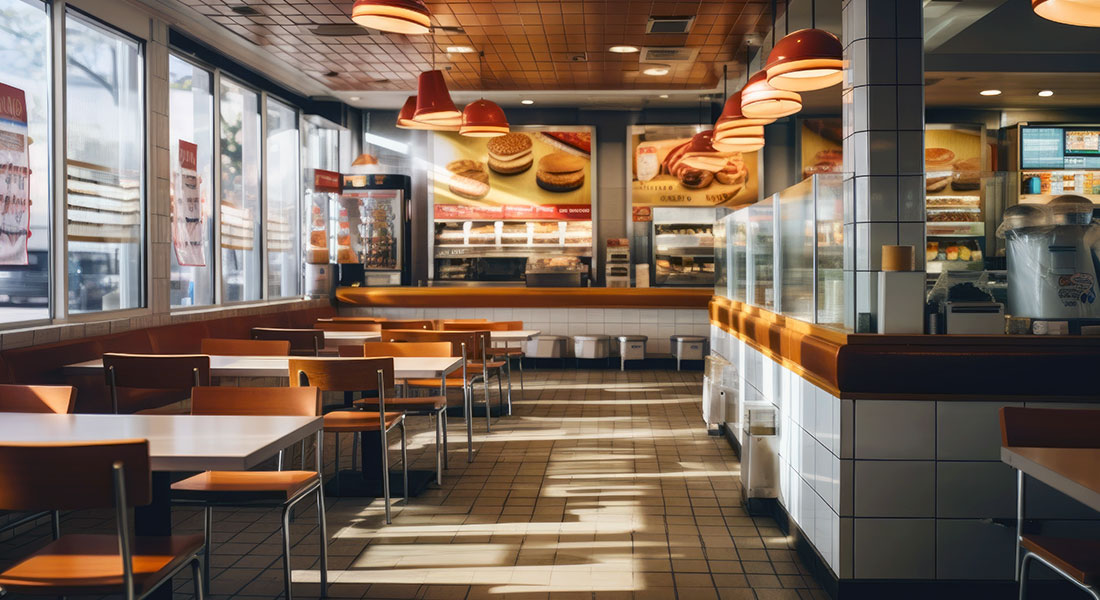
Costs and Franchise Financing Options
An important question every new franchise owner has is, how much does it cost to buy a franchise. The good news is there are many franchise financing options available and franchises often attract lenders due to their proven models and lower risk. We’ve discussed initial investment ranges, but let’s put the franchise pieces together. Understanding how much it costs to buy a franchise varies widely by industry, location and brand. Here’s a quick overview:
- Low-cost franchises: Some service-based franchises (like home cleaning or mobile businesses) can cost under $100,000 total. These often have no storefront and lower equipment needs. Some affordable options require even less capital to start.
- Mid-range franchises: Many retail, fitness or fast-casual food franchises fall in the $150,000–$500,000 investment range. For example, an ice cream shop or a gym might be in this range including build-out.
- High-end franchises: Hotels, full-service restaurants and large retail operations can cost $1 million or more. Fast food giants like McDonald’s often require $1–5 million plus significant liquidity from the owner.
Beyond startup costs, remember working capital is needed.
Financing the Franchise Purchase
Most people do not write a check for the entire franchise cost out of pocket, and they set up financing with banks. Here are common ways to get a loan to buy a franchise, along with financing options available:
- SBA 7(a) Loans: The SBA 7(a) loan program is one of the most popular options for franchisees. These are loans issued by banks with the majority guaranteed by the U.S. Small Business Administration. The government guarantee allows banks to offer lower down payments and longer terms. Specifically, SBA 7(a) loans can provide up to $5 million for virtually any business related purpose including franchise fees and equipment to working capital. Specialized franchise teams like those at First Bank of the Lake help guide buyers through this process. Dedicated SBA franchise loans offer tailored financing solutions for franchise buyers. Hundreds of different franchises qualify for SBA loans and can be viewed in the dedicated SBA Franchise Directory. If the franchise brand is on that list, the loan process is streamlined through the SBA Franchise Directory. Veterans may benefit from special veterans financing programs with additional advantages. Typically, you’ll need a credit score around 720, a solid business plan and some equity injection (often a 10%–20% equity injection) to get approved.
- SBA 504 Loans: If your franchise involves major real estate or construction like a new restaurant or hotel, an SBA 504 loan is another excellent option. The SBA 504 loan is designed for financing commercial real estate and large fixed assets. SBA 504 loans offer long-term, fixed-rate financing by pairing a bank loan with a CDC loan. The typical structure: 50% from a bank, 40% from the SBA-backed CDC, and 10% from the borrower—ideal for major fixed asset purchases. The benefit is a lower down payment (often 10–15%) and fixed interest rates for the CDC portion. A 504 franchise loan can be ideal for buying a franchise that needs big-ticket purchases or property.
- Conventional Bank Loans: Some franchise buyers opt for a regular commercial loan from a bank or credit union. This might be viable for those with strong credit, ample collateral and a smaller loan need. However, conventional loans often require larger down payments and have shorter terms than SBA loans. Given that franchise financing through SBA is so accessible, most choose SBA if they qualify.
Before applying for financing, get your documents in order. You’ll need a thorough business plan showing the franchise’s financial projections for several years. Your personal financial statements, tax returns, a copy of the franchise agreement, the FDD agreement and any other documents needed for the bank’s review. Lenders will evaluate both you and the franchise. The fact you’re buying a franchise may make them more comfortable, but you still must qualify as a borrower.
SBA loans typically require that the franchise brand is listed on the SBA Franchise Directory. This ensures the franchise agreement meets certain SBA standards. The SBA has historically faced challenges with franchise loan oversight, leading to improved standards and requirements. As of mid-2025, the SBA reinstated this directory with new rules, so check the latest list when planning your loan.
Preparing to Purchase and Launch Your Franchise
Once you’ve chosen a franchise, secured financing and done your due diligence, it’s time to learn how to buy a franchise business and get ready for your grand opening.
- Site Selection and Setup: If your franchise needs a physical location, the franchisor often assists with site selection. They may have criteria for locations that include demographics, traffic counts, proximity to competitors, etc.
- Lease or Purchase: Negotiate the lease if renting. Some franchisors help with lease negotiations or have approved layouts and contractors if construction is needed. Make sure the lease terms align with your franchise terms. For instance, you don’t want a 5-year lease on a 10-year franchise agreement without clearly stated renewal options.
- Build-Out: Once you have a location, you’ll renovate or build it to meet the franchisor’s specifications. They will provide plans or prototype designs. This stage includes permits, contractor work, installing equipment and decorating with the franchise’s branding. Keep in close contact with your franchisor during build-out; they often need to approve the finished site.
- Sign the Franchise Agreement: Once your questions are answered and financing is approved, you will sign the franchise agreement (and usually pay the franchise fee at this point). This is the contract binding to you and the franchisor, so make sure you (and your lawyer) are satisfied with the terms before signing. After signing, you are officially a franchisee of the brand!
- Pay Initial Costs: Along with the franchise fee, you might need to set up an escrow for certain startup costs or pay an initial inventory purchase. If you obtain a loan, the loan will typically be funded at this point, allowing you to pay these expenses. Ensure you understand what upfront costs the franchisor requires immediately versus what can be paid over time.
- Set Up Your Business: If you haven’t already, establish a legal entity for your franchise like an LLC or S corporation. Make sure you understand the different types of legal business entities, along with the benefits and potential drawbacks of each type. The franchisor may also have requirements on your business entity type. This is also the time to obtain any required local business licenses or permits to operate.
Training and Opening Preparation
Franchisors typically have a training program for new owners and sometimes for your manager or key staff. This can be a few days to several weeks at headquarters or a training store. Make sure to attend and learn everything about starting the franchise like:
- Training: Learn the systems, from how to use the point-of-sale system to how to market locally. Take notes on operations, hiring practices, customer service standards, etc. The goal is to replicate the franchisor’s successful methods exactly, especially in the beginning.
- Staffing Up: Begin hiring your team well before opening. Some franchisors help with this by providing job descriptions or even sending trainers to help you instruct employees in the franchise’s methods. Hiring good people is crucial that will uphold the brand’s standards.
- Marketing Launch: Work with the franchisor’s marketing team on a grand opening plan. Many franchises do an initial advertising blitz or promotions (coupons, mailings or local events) to attract new customers when you open. As a franchisee, you might get templates for social media posts, flyers and press releases to announce your new business. Consider reviewing franchise websites for design inspiration to enhance your online presence.
- Final Checklist: In the weeks leading up to opening, you’ll be busy! Coordinate any necessary inspections (health inspectors for food businesses, etc.), set up supplier accounts (often through franchisor-approved vendors), stock your inventory, test all equipment and practice running through transactions. Use the franchisor’s opening checklist if provided. Also ensure your finances are in order (your point-of-sale system linked to your business bank account, etc.). The franchisor might send a field representative to help with last-minute preparations.
Grand Opening and Beyond
The big day arrives – it’s time to open your franchise to customers! The grand opening is usually both exciting and hectic. Many franchisors send support staff for the first week or so to assist you and ensure things run smoothly. Follow their guidance – they’ve opened many locations before.
Running a franchise is hard work, especially in the first year. Expect long hours and hard work as you learn the ropes. But also remember you have a network to lean on with your franchisor and fellow franchisees. Attend any franchisee meetings or conferences to share tips and stay updated on best practices. Over time, as your franchise grows, you might even consider opening additional units (“multi-unit” ownership) if the franchisor allows – many of the most profitable franchisees own several locations once they have proven they can run one well.
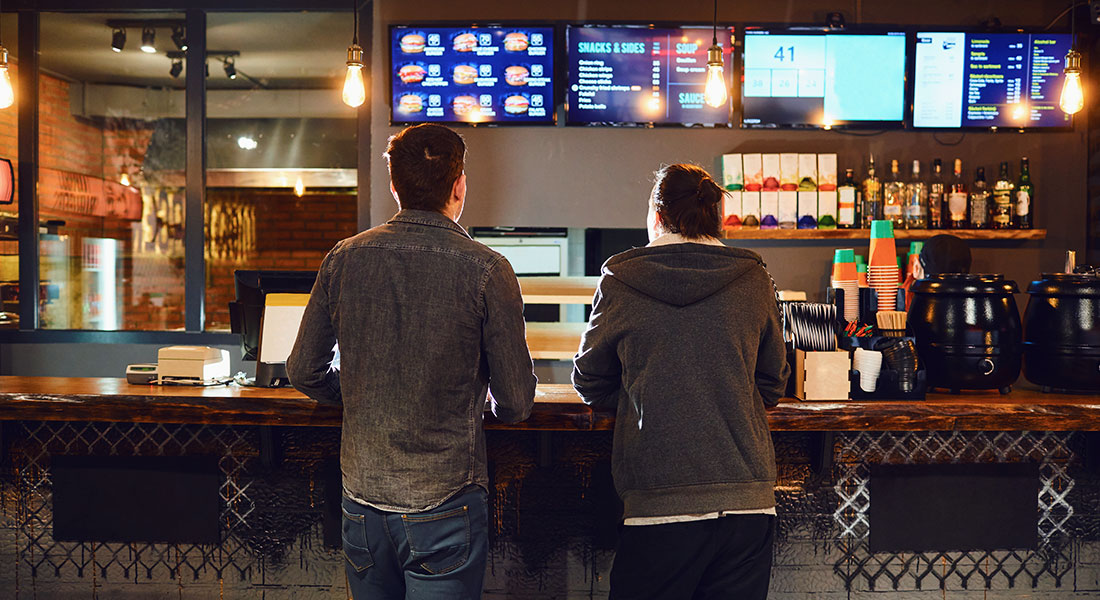
Franchise Success Stories and Resources
Hundreds of thousands of Americans have become successful business owners through franchising. Learning from others’ experiences can provide valuable insight and inspiration. Here are a few brief case studies of franchise owners who secured SBA loans and made their dreams a reality:
- Tint World® Franchise: A car enthusiast secured a $585,000 SBA 7(a) loan from First Bank of the Lake to open a Tint World auto services franchise. With solid planning and support, the location quickly reached break-even and is thriving.
- Woof Gang Bakery & Grooming Franchise: One dog enthusiast obtained SBA financing to open a pet grooming and bakery franchise. Even though she was a first-time business owner, she used franchisor’s training and First Bank of the Lake’s expertise to turn her passion for pets into a growing company. You can read the Woof Gang case study for more details and real numbers.
- Home Services Franchise – Lifetime Green Coatings: A father-and-son team based in Kentucky wanted to bring an eco-friendly floor coating franchise to their area. Even as a startup franchisee, they secured a $400,000 SBA loan to launch. and were nearly breakeven in three months of operation.
These success stories show that with dedication, due diligence and the right financing partner, franchising can lead to significant financial and personal rewards. For more real-world insights, check out our Franchise Loan Case Studies where we share how actual clients financed and built their franchise businesses.
How to Buy a Franchise FAQ
Q: How do I buy a franchise from start to finish?
A: Here are the steps to buy a franchise.
- Research and choose a franchise that fits your goals and budget.
- Apply and secure franchisor approval.
- Study the FDD and perform due diligence.
- Arrange financing, such as an SBA loan.
- Sign the agreement and pay the fee.
- Complete franchisor training.
- Set up your site or operations with their support.
- Launch, market locally, and follow the system.
Q: What is the cost to buy a franchise on average?
A: Costs vary. Small service brands can start below $100,000, while popular fast‑food chains often need $1–2 million. Many retail or fitness concepts fall around $250,000 – $500,000. Review the FDD for the full investment, including fees, build‑out, equipment, and reserves.
Q: Can I get a loan to buy a franchise?
A: Yes. Most franchisees finance through SBA 7(a) loans if the brand is in the SBA Franchise Directory. Banks and credit unions lend to proven concepts, and some franchisors offer in‑house or preferred‑lender programs. Prepare a solid business plan and strong credit before applying.
Q: Are there other franchise articles on this site?
A: Here are more franchise articles on this site that may help you with researching and buying a franchise.
- SBA Franchise Loans
- Franchise Loans and Franchise Financing
- Franchise Loan Use Cases
- Franchise Financing
- Most Common Franchised Industries
- Franchise Business Loans
Q: What’s a good franchise to buy?
A: The best choice depends on your skills, market, and budget. Fast‑food brands are popular and profitable but costly and competitive. Essential‑service franchises like home maintenance or senior care offer steady demand with lower entry fees. Study rankings, financials, and current owners, then pick a brand whose support and record suit you.
Q: Why is the FDD so important?
A: The FDD lists fees, costs, legal duties, and the franchisor’s history. Reading it thoroughly shows exactly what you are committing to and prevents costly surprises. Skipping it is a common, expensive mistake.
Q: How long until a franchise becomes profitable?
A: Break‑even ranges from a few months for low‑cost, home‑based brands to a year or more for capital‑heavy restaurants or gyms. Profit timing depends on industry, location, expenses, and customer growth. Review Item 19, keep ample working capital, and model cash flow to set realistic goals.

Getting Started on Your Franchise Journey
Understanding how to buy a franchise is a significant investment, but with the right preparation it can be a highly rewarding path to business ownership. You’ve learned how to buy into a franchise – from choosing the right concept and doing your homework, to lining up franchise financing and launching successfully. The process requires careful research, financial planning and dedication, but you’re never alone in franchising. By following proven systems and leaning on the franchisor’s support, you can build a thriving business of your own.
Ready to take the next step? If you’ve identified a promising opportunity to buy a franchise business, talk to our team at First Bank of the Lake about your funding options. As one of the nation’s top SBA lenders for franchises, we’re here to help you secure the capital you need to make your franchise dreams a reality.
The friendly financial experts at First Bank of the Lake offer SBA loans designed with the needs of our customers in mind. We financed more than $1.1B in SBA loans and were ranked as the 15th largest SBA lender in the United States in 2024. Since our founding in October 1985, we have offered outstanding customer service and the best financial options for their needs. Today, First Bank of the Lake offers loans for business enterprises across the United States. To learn more about our bank or to learn more about SBA loans, visit our website or check us out on Facebook or LinkedIn. Our friendly and knowledgeable staff members will be happy to discuss your loan options with you and to help you achieve the highest degree of success in your chosen industry. Please contact us at (888) 828-5689 to get your business loan questions answered today!
Information and interactive calculators are made available to you only as self-help tools for your independent use and are not intended to provide loan advice. We cannot and do not guarantee their applicability or accuracy in regards to your circumstances. All examples are hypothetical and are for illustrative purposes. We encourage you to seek personalized advice from qualified professionals regarding all financial issues.
What Our Customers Say
Gave Me the Confidence I Needed
Huge thanks to Tammy and Brandi. Tammy was my first point of contact and gave me the confidence I needed since there isn't a local branch near where I live. Brandi has been answering ALL my questions since and has excellent follow up and has taken great care of me.
— Michele Houston
Genuinely Interested in Helping My Business Succeed
First Bank of the Lake was a tremendous help in securing a 504 small business loan for my company. Every staff member I interacted with was professional, friendly, and genuinely interested in helping my business succeed.
— Don Kamb
Exceptional Service
I cannot say enough positive things about my experience working with Eric as my SBA loan officer. From start to finish, he provided exceptional service and went above and beyond to ensure that every issue we encountered was resolved quickly and efficiently.
— Bryan Crowe
Real business owners. Real results.
Woof Gang Bakery SBA Loan Case Study
After years in HR, Kasia followed her passion for animals and, with a $345K SBA loan from First Bank of the Lake, quickly launched her Woof Gang Bakery & Grooming franchise — already nearing breakeven just months in.
Tint World SBA Loan Case Study
After losing his wife, a friend, and his life savings, Dan Billings reinvented his life with a Tint World franchise — and with guidance and an SBA loan from First Bank of the Lake, his business is thriving and he’s already eyeing a second location.
Lifetime Green Coatings SBA Loan Case Study
Father and son duo Barry and Parker Norfleet launched six Lifetime Green Coatings franchises with a $400K SBA loan from First Bank of the Lake — quickly setting up operations and nearly breaking even within just three months.
Download Free ePubs on Buying a Business and SBA Loans
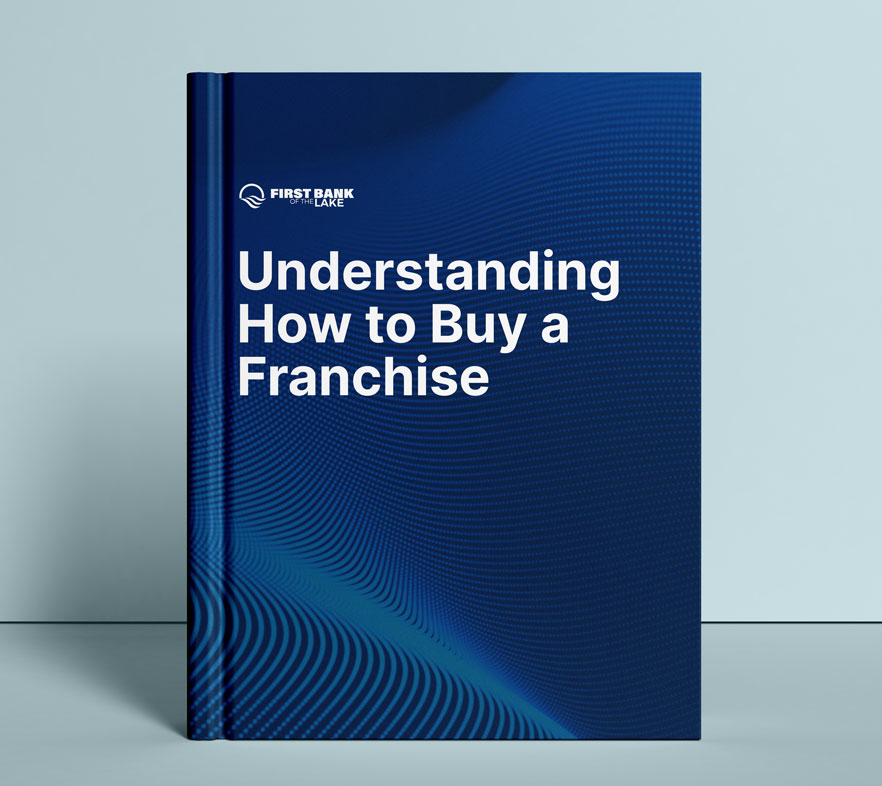
Learn how we’ve made hundreds of franchise loans
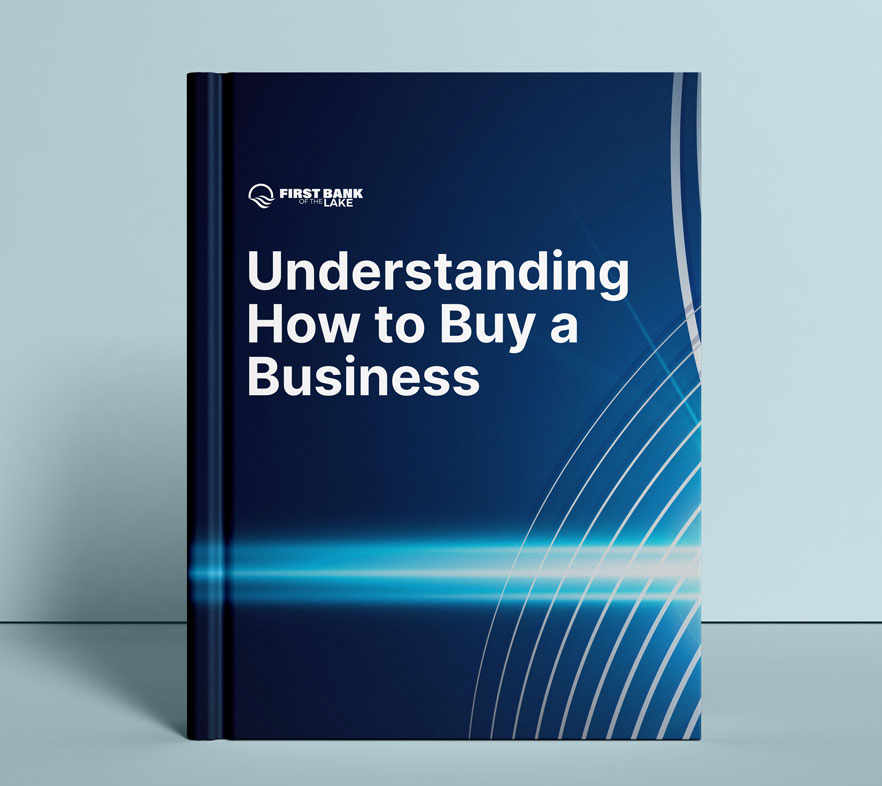
Learn how to buy your own business from the experts
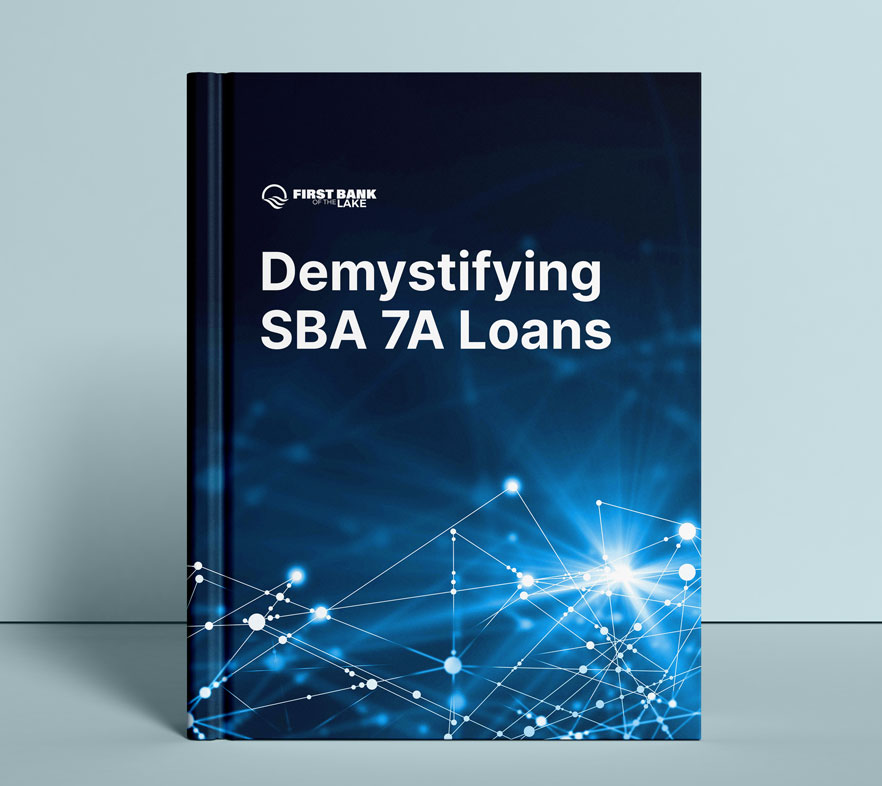
Learn how to get an SBA 7A loan and grow your business
